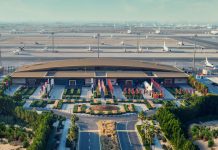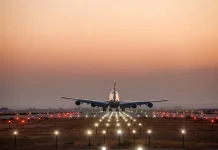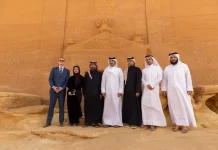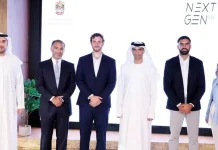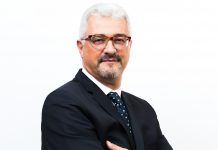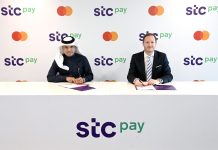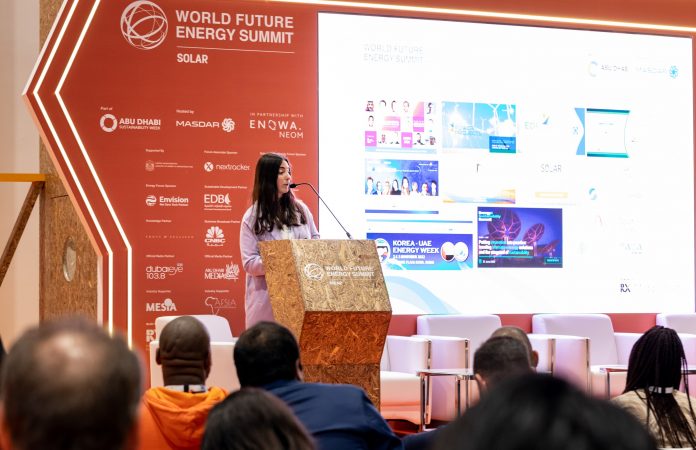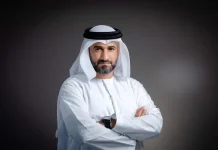Green hydrogen sustainably sourced through solar is set to turn the Middle East and North Africa (MENA) into the world’s second-largest electrolyser installer by 2040, the World Future Energy Summit in Abu Dhabi heard recently.
The optimistic forecast came from the Secretary General of the Middle East Solar Industry Association (MESIA), Denisa Fainis, as she presented the Association’s Solar Outlook Report 2023 to attendees at the Solar & Clean Energy Forum – one of six specialised vertical events in the Summit’s overall programme.
Fainis said that if MENA realised its production potential – which would see it account for 20% of global green hydrogen production – it would also become a main supply chain hub given its geographic positioning between Asia and Europe.
The MESIA Outlook Report, however, calls on solar PV developers and business owners to look to build competitive tariffs and lower cooling consumption by increasing energy efficiency and implementing building management systems.
“Although the Middle East is gifted with summertime year-round, one of its main energy consumers and contributors to CO2 emissions is cooling and demand for this is expected to triple by 2050,” warned Fainis.

Launched at the World Future Energy Summit every year, the report, the 10th from the Association, says while the adoption of electric vehicles in the Middle East remains a challenge in terms of infrastructure and hot weather testing, there are signs that the sector could bring a major economic boost to Saudi Arabia. MESIA highlights Saudi Arabia’s ambitious EV manufacturing plans saying its estimated capacity of 350,000 vehicles will “ignite the creation of an industry with the goal of creating jobs and diversifying the economy.”
The report also addresses asset management via drone surveying, robot cleaning, O&M digitalisation, and country-specific highlights and experts’ opinions on the opportunities and challenges within the individual nations. It also takes a quick dive into the countries with electricity shortages and identifies the pain points that could prove to be opportunistic for businesses with high-risk appetites.
“We are at the dawn of a new growth phase for solar energy,” commented Fainia, adding that the new phase is unshackled by the past decade of questioning the validity of solar. “Equally important is the fact that solar energy is competitive in cost and electricity price against other energy products and solutions, which has been the underlying factor for its resilience and unimpeded growth through the sustained low oil and gas prices and recent volatile energy market conditions,” said the MESIA Secretary General. “Solar energy has always been unique amongst other technologies, being able to be scaled to fit any need from residential applications to utilities-at-scale developments. This great flexibility has resulted in solar energy being applied to related energy requirements such as electrified transportation and green hydrogen production. Electrified transport and the growth of battery storage solutions offer uniquely symbiotic solutions for solar energy which, if implemented correctly, could hasten us towards our destination of a net-zero future.”
Fania says MENA’s solar installation and implementation experience has led to a fresh drive for greater energy yields and high operational efficiencies through technological advancement. “The nascent but important aspect of solar energy production has brought in new applications of robotics, AI, drones, and imaging technologies, all aimed at improving efficiencies of solar energy. Solar photovoltaic technologies continue to find better efficiencies at both the cellular and module levels. New technologies such as Hetero Junction technology and Perovskites are yet to become mainstream, but the industry is watching them closely to gauge the future trajectory these potential higher efficiency cells can create.”
RX Middle East which organises the World Future Energy Summit, says the MESIA report is a positive forecast of the MENA region’s rich solar potential.
“The region is readying for an influx of both private and public investment in its solar infrastructure as the medium plays an increasing role in MENA’s energy mix. The potential appears huge as evidenced by Saudi Arabia’s ambitions to turn its new city development Neom into the world’s first city entirely powered by renewables, in particular solar,” commented Leen Alsebai, Head of the World Future Energy Summit and General Manager of RX Middle East. “The Solar & Clean Energy Forum is a weathervane to where the industry is heading, and it’s pointing to a very bright future indeed.”
The World Future Energy Summit is hosted by Masdar and is part of Abu Dhabi Sustainability Week, a global platform for accelerating the world’s sustainable development. The event is also, for the first time ever, held in partnership with ENOWA.


